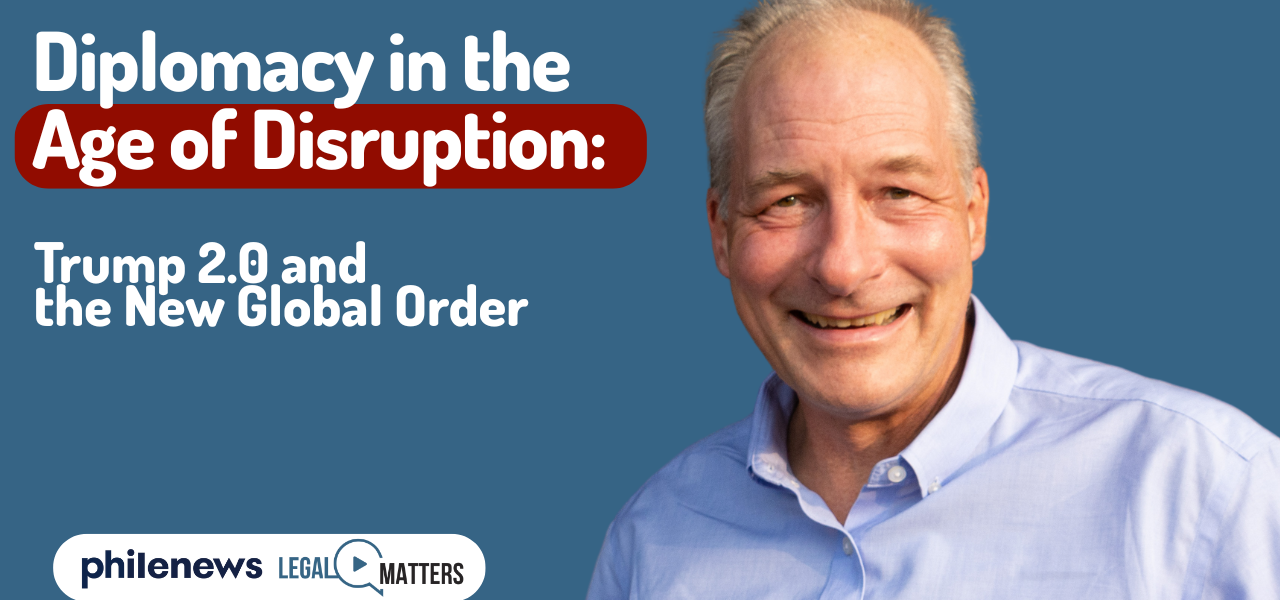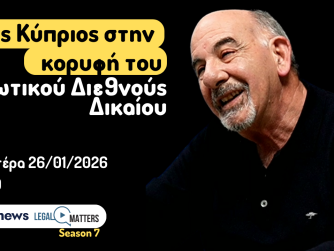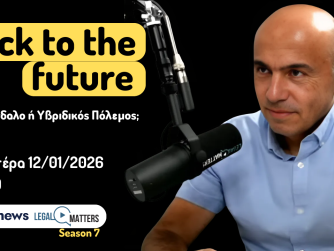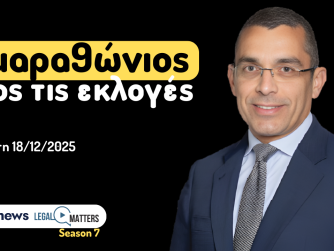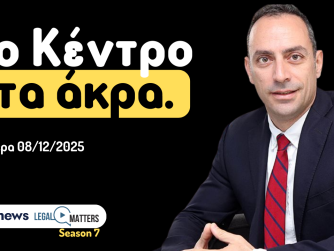John Koenig served as a U.S. diplomat for 31 years. He spent a total of six of those years in Cyprus — first as Political Counselor at the U.S. Embassy from 1994 to 1997, and later as Ambassador from 2012 to 2015.
Recently, a reference he made to the former President of the Republic of Cyprus in an article on Substack sparked public debate over his role during his time as ambassador. Taking that as a starting point, I invited him to LegalMatters to talk about the Trump administration, American diplomacy, and, of course, Cyprus.
I believe that engaging in dialogue with current and former foreign diplomats is invaluable. It allows us to understand how they think, how they operate, how decisions are made, and how they perceive our reality through their own lens.
This is a truly fascinating conversation with an experienced diplomat — and I thank him sincerely for it.
🎧 Podcast Summary & Topics: Ambassador John Koenig on Diplomacy, Integrity, and Cyprus
1. Early Career & Academic Background
- Studied anthropology; initially aimed for an academic career.
- Transitioned into the U.S. Foreign Service in the 1980s.
- Still teaches part-time and writes on Substack to reflect on diplomacy and global politics.
2. Experience in East Berlin (1985–1987)
- Served under constant surveillance by the Stasi.
- Gained a deep understanding of life under authoritarian regimes.
- Drew parallels between East Germany’s division and Cyprus’s situation — but emphasized that Cyprus’s division is more personal and rooted in displacement and trauma.
3. Diplomatic Assignments in Cyprus
- Served in Nicosia (1994–1997) and returned as Ambassador (2012–2015).
- Maintained a long-standing interest in Cyprus, motivated partly by personal and cultural ties (his wife is of Greek descent).
- Described his emotional and professional investment in Cyprus and its future.
4. Vice President Joe Biden’s 2014 Visit to Cyprus
- Offered exclusive behind-the-scenes insight into the first high-level U.S. visit in decades.
- Visit aimed to boost support for renewed negotiations after the 2014 joint declaration.
- Koenig negotiated aspects of the visit and was disappointed by the failure to secure major confidence-building measures — especially around Famagusta.
- Believes more progress may have been possible under different Turkish Cypriot leadership.
5. The Trump Presidency & Ethical Dilemmas in Diplomacy
- Discussed his Substack article “Personal Integrity”.
- Argued that serving under Trump presents a moral conflict due to his authoritarian tendencies and disregard for democratic norms.
- Raised concerns over governance by executive order, suppression of dissent, and use of state power for personal agendas.
6. The Collapse of U.S. Commitment to International Law
- Criticized both Trump and Biden administrations for failing to uphold international law.
- Highlighted Gaza and Ukraine as crises exposing U.S. hypocrisy or disengagement.
- Warned of the global consequences of abandoning international norms — particularly for small nations like Cyprus.
7. The Military-Industrial Complex in the U.S.
- Explained how major defense contractors influence American foreign policy and legislative agendas.
- Described the system as “openly corrupt” — legalized lobbying replacing democratic accountability.
- Gave examples such as the F-35 fighter program and how military spending distorts security priorities.
8. Europe’s Strategic Autonomy & NATO
- Urged European nations to reduce reliance on the U.S., especially if Trump returns to power.
- Endorsed Macron’s critique that NATO is “brain-dead.”
- Believes the EU must develop its own credible defense and deterrent mechanisms.
9. The Cyprus Problem: Diagnoses and Missed Opportunities
- Argued that the Cyprus issue is not only about invasion and occupation but stems from a deeper intercommunal conflict.
- Suggested the 2004 Annan Plan was a serious missed opportunity — approved by Turkish Cypriots but rejected by Greek Cypriots.
- Described Crans-Montana 2017 as another lost chance, with Guterres offering a significant verbal proposal that was ultimately rejected by the Greek Cypriot side.
- Shared candid thoughts on distrust between communities and the difficulties of building mutual confidence.
10. On Hydrocarbons and Regional Tensions
- Disagreed with the theory that gas discoveries would serve as a catalyst for peace.
- Believes they instead worsened tensions and were misused diplomatically.
11. Public Criticism and Personal Reflections
- Defended his controversial statements on President Anastasiades, calling them personal views rather than official pronouncements.
- Acknowledged that a 2015 tweet about the President’s Moscow visit was “foolish” but denied it led to his resignation.
- Shared respect for AKEL’s positions on the Cyprus issue, contrasting them with more rejectionist parties.
12. The Future of the Cyprus Problem
- Expressed skepticism about the prospects for reunification.
- Warned that the de facto division may be becoming permanent, reinforced by status quo interests.
- Emphasized the need for realism and care not to break the fragile peace that still exists.


